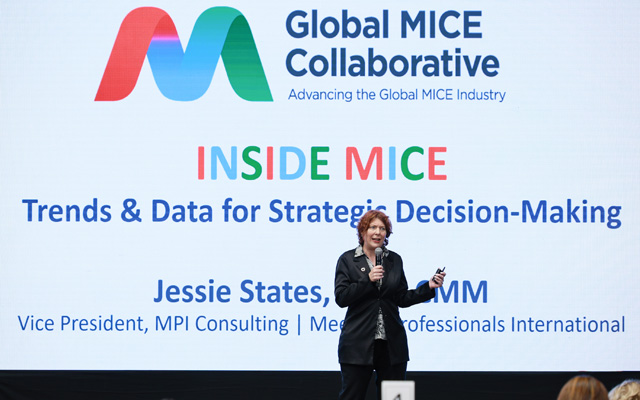
The global business events industry is heading into 2026 with significantly cooled optimism, according to the latest research presented at the Inside MICE: Trends and Data for Strategic Decision-Making session at IT&CM Asia and CTW APAC 2025 last week.
“Forty-seven percent of respondents believe business conditions will improve in the next 12 months, but 43 per cent expect decline,” Jessie States, vice president, consulting, Meeting Professionals International (MPI), presented.

She noted that optimism has cooled sharply since late 2024, when 78 per cent foresaw growth, underlining a tougher business environment heading into 2026.
Risk is also on the rise, with 51 per cent of planners say their level of concern related to safety and risk is higher than in 2023, while 39 per cent say their concern is significantly more than pre-pandemic 2019.
Top perceived threats include natural disasters and weather (48 per cent), IT outages (34 per cent), and data breaches (33 per cent), alongside social unrest (31 per cent) and international conflicts (25 per cent).
Costs are also rising across all categories. More than half of respondents reported one to 10 per cent price hikes in F&B, AV, event space, hotels, and transport over the past year – with respondents expecting the same again in the year ahead. F&B was hit hardest: over a quarter saw prices jump more than 10 per cent last year, while more than 20 per cent anticipate another double-digit increase this year.
While 47 per cent of planners still project budget growth, 30 per cent foresee cuts, marking a 25 per cent year-on-year drop in confidence.
“The top concern right now is cost and budget, right up there alongside politics, the economy, and legislation – and that’s international, across all organisers. In all areas, prices are going up. Planners need to go back to stakeholders with data, and have a serious discussion on whether to amend the delegate experience or allocate more funds,” States emphasised.
Business travel habits, meanwhile, are rebounding beyond pre-Covid norms. Forty-six per cent of respondents report more trips than in 2019, 42 per cent add leisure time, and 45 per cent show a stronger desire to travel. However, satisfaction levels remain uneven, with only 16 per cent reporting improved travel experiences.
Data from MPI’s AI Sentiment Meter also revealed somewhat positive views rising from 50 per cent in late 2023 to 68 per cent by February 2025, as planners grow more comfortable with AI.
“When we first started asking, everyone was wary of its impact. Now, while concerns remain, many organisers are leaning into AI as an invaluable tool,” concluded States.




















